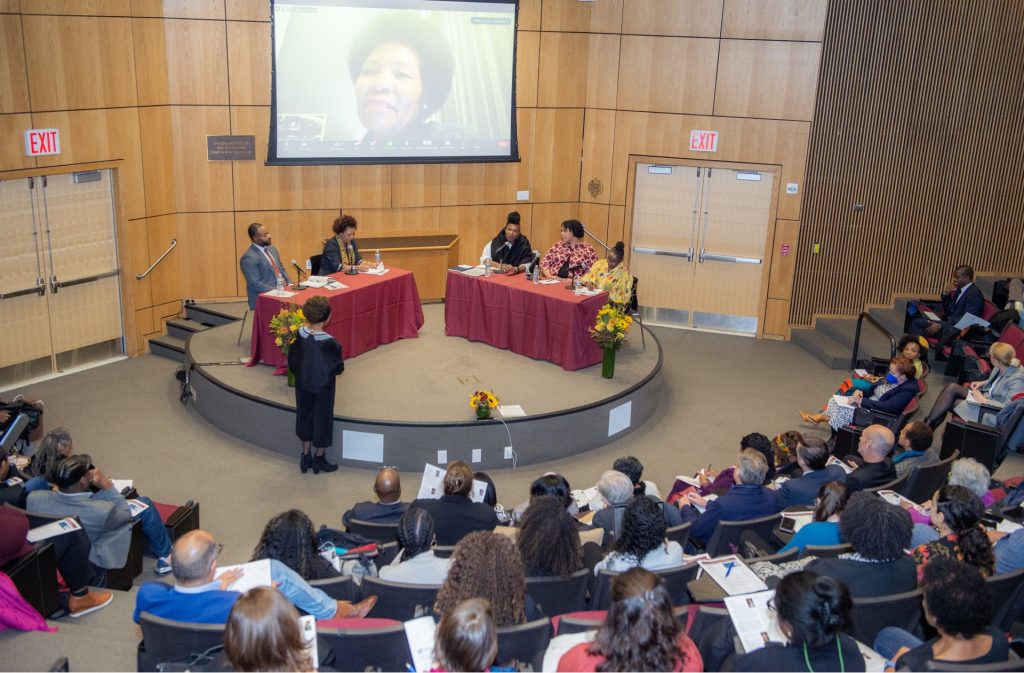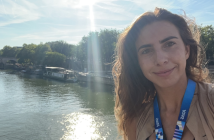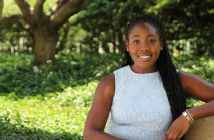This semester, Fordham Law launched the Global Anti-Racism Clinic—one of the first of its kind in the country. A joint initiative of the Leitner Center for International Law and Justice and the Center on Race, Law and Justice, the Clinic engages students in projects that aim to challenge and redress racism, global discrimination, and inequality at national, regional, and international levels.
Students will work with international and regional experts on cases and projects that make efforts to combat systemic racism in a range of contexts. The Clinic is led by Professor Paolo Galizzi; Professor Gay McDougall, a member of the UN Committee on Elimination of Racial Discrimination (CERD) and a distinguished scholar-in-residence at the Center on Race, Law and Justice and the Leitner Center; Center on Race, Law and Justice Executive Director Zenande Booi; and Leitner Center Executive Director Elisabeth Wickeri. In particular, clinic students will support McDougall’s work at CERD.
“An incredible amount of work has been done by UN independent experts like Gay—and our guests at the [November 1] symposium—to develop, strengthen, and make accessible and responsive mechanisms to hold states accountable to their obligations of anti-racism and human rights,” said Booi. “The goal of this Clinic is to become a resource for these, and other, institutional mechanisms as well as a resource for individuals, communities, and activist organizations that wish to make use of them. It is especially exciting that our students will have an opportunity to work at the center of crucial global initiatives and efforts to fight racism.”
“Our goal is to offer the talents, energy, and brilliance of our students and add our efforts to this cause,” added Dean Matthew Diller. “The work of this initiative will make indelible impacts at this critical time.”
The Global Anti-Racism Clinic at Fordham Law from Fordham Law School on Vimeo.
A “Historic Moment”
A day after the UN General Assembly held a day-long session addressing issues of racial discrimination on Oct. 31, the Leitner Center and the Center on Race, Law and Justice held a symposium regarding the global anti-racism ecosystem at the United Nations. The program, titled “Can the United Nations End Racism?”, was co-sponsored by the Black Law Students Association, Latin American Law Students Association, and South Asian Law Students Association.
“The impact of the Black Lives Matter movement, the events recognizing the 20th anniversary of the seminal Third World Conference Against Racism in Durban, South Africa, and the global outrage at the murder of George Floyd by police all created a momentum that propelled the UN to renew and refresh its commitment toward racial justice, and to do so by creating two institutional mechanisms … that resonate in the contemporary voices and approaches of this day—not of the day, in 1947, when the UN was first born,” said McDougall. “These dynamics make this a very opportune time for us to gather and to reflect on this new UN architecture of institutional mechanisms against racism.”

Professor Gay McDougall (center) with E. Tendayi Achiume, Gaynel Curry, Dominique Day, Justin Hansford, and Verene Shepherd
UN independent expert members—including E. Tendayi Achiume of UN Special Rapporteur on Racism; Gaynel Curry of UN Permanent Forum on People of African Descent; Dominique Day, former chair of UN Working Group of Experts on People of African Descent; Justin Hansford of UN Permanent Forum on People of African Descent; Justice Yvonne Mokgoro, former Justice of the Constitutional Court of South Africa and chair of the UN Expert Mechanism on Racial Justice and Equality in Law Enforcement; and Verene Shepherd, chair of the UN Committee on the Elimination of Racial Discrimination—discussed the UN’s new institutional mechanisms as well as the new anti-racism architecture of its human rights system with moderator Gay McDougall.
“We are thrilled to have gathered representatives from the [six]UN mechanisms to discuss their successes and challenges [in their respective work],” said McDougall. “This is the first time we have ever had the opportunity to get together as a body, not as separate silos. This is a historic moment.”
Lorraine Fernandes ’24 felt honored to have attended the symposium and to be one of the 12 students enrolled in the Clinic this semester.
“This clinic experience has been such an emotional rollercoaster in the beginning as I started to wrap my head around the complex dynamics of the UN bodies and CERD, and how my team and I are contributing to this profound international body,” said Fernandes. “But as we near the end of this clinic, I feel so well-equipped to research racial discrimination exhibited in [foreign]countries. This clinic experience has exceeded my expectations for what I wanted my experience to be at the beginning of the semester.”
“As we come to the tail end of the first iteration of the Clinic, I am incredibly excited about its future and all the ways it will grow,” added Booi. “International human rights legal frameworks can very easily feel theoretical and far removed from individual and community contexts and realities.”





